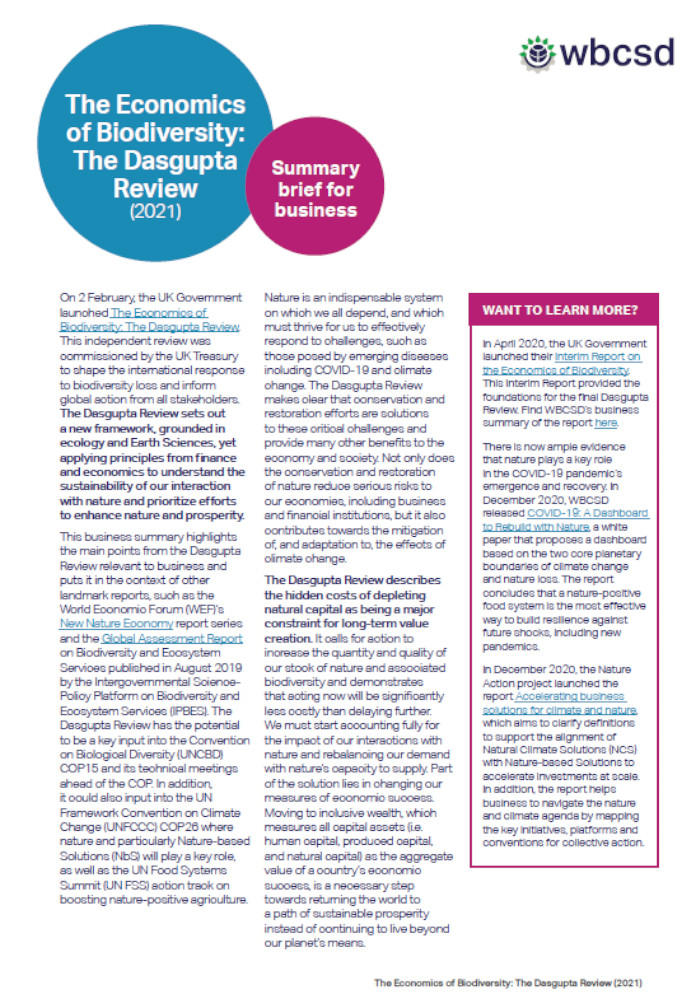
On 2 February, the UK Government launched the Dasgupta Review on the Economics of Biodiversity. This independent review was commissioned by the UK Treasury to shape the international response to biodiversity loss and inform global action from all stakeholders. The Dasgupta Review sets out a new framework, grounded in ecology and Earth Sciences, yet applying the principles from finance and economics to understand the sustainability of our interaction with nature and prioritize efforts to enhance nature and prosperity.
This business summary highlights the main points from the Dasgupta Review relevant to business and puts it in the context of other landmark reports, global policy events and frameworks related to the biodiversity and climate agendas. The Dasgupta Review describes the hidden cost of liquidating natural capital assets as a constraint for long-term value creation. It calls for action to increase the quantity and quality of our stock of nature and demonstrates that acting now will be significantly less costly than delaying further.
Fundamentally, the Dasgupta Review develops the economics of biodiversity on the understanding that we, and our economies, are embedded within nature- not external to it. There has been an institutional failure to account for the externalities nature provides. One of the solution areas identified by the Review is the need to change our measures of economic success. Moving to inclusive wealth, which measures all capital assets (ie. human capital, produced capital, and natural capital) as the aggregate value of a country’s economic success, is a necessary step that will allow the world to return to a path of prosperity that operates within planetary boundaries.

